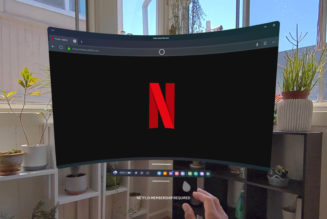The Center for Countering Digital Hate is Twitter’s latest target for legal threats.
Share this story

Twitter — now called X — is threatening to sue the Center for Countering Digital Hate (CCDH) for its research into hate speech on Twitter that the company claims is driving away advertisers. In a letter to the CCDH, which was first reported by The New York Times, Twitter lawyer Alex Spiro claims that the CCDH “regularly posts articles making inflammatory, outrageous, and false or misleading assertions” about Twitter with the goal of harming its reputation.
The CCDH is an organization that aims to hold social media companies accountable for the spread of hateful material online. Since Elon Musk’s takeover of Twitter, the CCDH has published numerous reports that suggest the platform is failing to protect users from hate speech. In its most recent study, the CCDH found that Twitter doesn’t take action against 99 percent of hate speech posted by paid subscribers to Twitter Blue.
The letter, which Twitter sent out on July 20th, 2023, specifically addresses this study, alleging the CCDH’s findings “are not supported by anything that could credibly be called research” and exists to drive away advertisers. Spiro says that Twitter has “reason to believe” that the CCDH is funded by X Corp.’s competitors and government entities:
Twitter takes its commitment to free speech, the enforcement of its rules and policies protecting users, and its strong relationships with its advertising partners all extremely seriously… to the extent that CCDH is passing off as impartial “research” material that is in fact being funded in support of an ulterior agenda, your representations are all the more misleading.
Spiro warns that Twitter is also investigating whether it can take legal action against the organization’s “false and misleading claims.” One of Twitter’s biggest concerns right now is advertisers, and it seems like the company’s new CEO Linda Yaccarino’s main role is getting them back. This lawsuit is meant to help with that goal, but it might have the opposite effect. If it weren’t for Twitter’s letter, I probably wouldn’t have seen this study (so good job, Elon).
The CCDH rejected the company’s claims in a response posted to its website. “These allegations not only have no basis in fact (your letter states none), but they represent a disturbing effort to intimidate those who have the courage to advocate against incitement, hate speech and harmful content online,” the CCDH’s lawyer, Roberta Kaplan, writes. Pushing back on an organization that uncovers hate speech — rather than actually doing anything about it — doesn’t really look good on Twitter’s part.
Musk has been critical of the CCDH in the past. Just two days before Twitter sent its letter to the CCDH, Musk responded to a user’s tweet about its research: “Who is funding this organization? They spread disinformation and push censorship, while claiming the opposite. Truly evil.” This latest letter only adds to the growing number of legal threats Twitter has made in the past several months.
After threatening to sue Microsoft over accusations it “trained illegally using Twitter data,” the company sent a letter to Meta claiming its Threads app copied Twitter. But all this is just a lot of talk and no action so far, although it’d be somewhat entertaining to see how well Twitter’s claims hold up in court.









